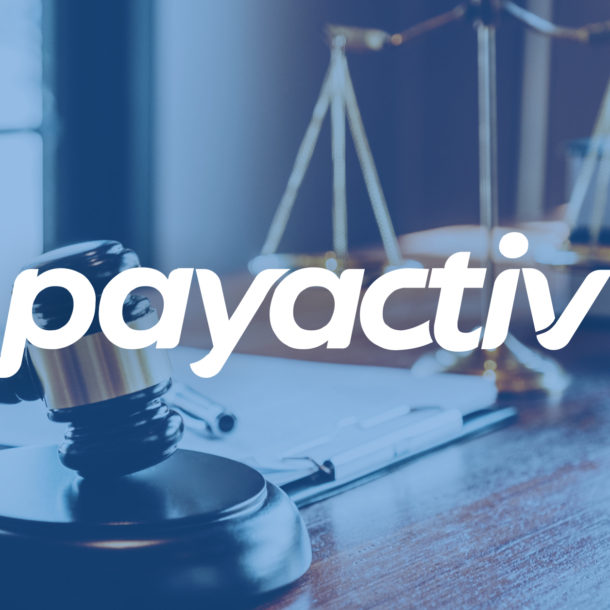
Swing into Spring with Supportive Workplace Financial Wellness Benefits
The ancient Greek philosopher Heraclitus said, “The only thing constant is change.” The arrival of the Spring season, with its warmer weather, budding flowers, growing trees, and pollen everywhere, reminds us how fluid our environment is. Change is (literally) in the air, our lives, and our workplaces.
Yet, over the last few years, one aspect of many American workers’ lives hasn’t changed with the seasons and remains a stubborn constant—financial stress.
Even though headline inflation has dropped from its record highs, it doesn’t feel that way for most employees. The compounding impacts of rising costs over time and still-high prices have caught up to workers in a big way.
Employers can’t fix inflation, and for most, significantly increasing workers’ salaries isn’t viable. However, they can provide critical support to their struggling workforce by offering financial wellness programs as part of their broader employee benefits initiatives.
Workplace Financial Wellness – A Benefit for All Seasons
A recent study into the saving habits, benefits preferences, and financial challenges faced by workers in the current economic landscape revealed that employees are increasingly viewing financial wellness as a must-have benefit.
Unfortunately, another study found that although 77% of workers view financial wellness programs as an essential benefit, only 28% of employers offer them! That’s a huge missed opportunity.
Here’s just one compelling reason why: A study in a 2023 issue of the Journal of Financial Literacy and Well-being revealed that a well-structured financial education program can remove at least 1 hour per week of worry and distress for each employee who participates in that program. Assuming an average wage of $15 per hour, at a company with 30 employees, a solid program can recover at least $22,500 of value per year.
Steps for Structuring Your Workplace Financial Wellness Program
Employers that heed the call for a renewed focus on employee financial wellness should avoid single, tactical solutions and blanket policies and instead consider their benefits offerings within the scope of a personal finance ecosystem.
It’s vital to consider factors that are unique to each of your workers—their existing level of financial literacy, cultural influences, socioeconomic status, income level, overall physical and mental health, where they live, and any other factors that contribute to their overall financial well-being.
At a minimum, an effective financial wellness program should cover these topics:
- The basics of financial literacy
- Savings and budgeting tools
- Debt-management education
- The importance of credit scores and how to build or repair them
- How and why to build emergency savings
- The basics of investing for retirement
- Guidance for preparing for other major life events, like having children or caring for aging parents
What’s the Role of Earned Wage Access in Modern Financial Wellness Programs?
With a growing percentage of American workers living paycheck to paycheck, companies are realizing they need to be smarter about how they pay their people. Proactive companies are moving towards paying people immediately upon completion of their work, a concept known as Earned Wage Access (EWA).
EWA is a safe and easy-to-implement accelerated payments model with far-reaching benefits. By giving workers access to their earnings when needed, you’re improving their cash flow and helping them manage unexpected expenses, bills, and emergencies. This financial cushion comes from their own earnings—not a credit card or a predatory payday loan—which helps them avoid taking on high-interest debt or damaging their credit score.
Less financial stress also translates to happier, more productive employees, meaning your business benefits. According to Payactiv’s research:
- 54% of people surveyed rate earned wage access as an “extremely important” benefit for employers to offer.
- 70% of users report improved satisfaction with their employer because of Payactiv’s Earned Wage Access.
If you fail to offer your workers faster payment options, you may lose employees to the gig economy, as more people are drawn to the flexibility of becoming an independent contractor.
Keeping your workforce happy is also one of the best ways to keep customers happy. Paying your workers instantly once they’ve completed their shifts has a direct positive effect on the level of service they provide.
Step Up Your Benefits Proposition this Spring
Every company will face high and low seasons, and employers can’t always predict what the next day, month, or quarter will hold. Whatever the environment, it’s important to remain rooted in what matters most—your employees.
At Payactiv, our mission is to help employers close their workers’ financial wellness gaps with relevant, inclusive, and accessible benefits.
If creating an enhanced employee experience and supporting your workers is important to you, learn more about Payactiv’s Service or book your demo now.
Get Payactiv for your business
© 2025 Payactiv, Inc. All Rights Reserved
24 hour support: 1 (877) 937-6966 | support@payactiv.com
* The Payactiv Visa Prepaid Card and the Payactiv Visa Payroll Card are issued by Central Bank of Kansas City, Member FDIC, pursuant to a license from Visa U.S.A. Inc. Certain fees, terms, and conditions are associated with the approval, maintenance, and use of the Card. You should consult your Cardholder Agreement and the Fee Schedule at payactiv.com/card411. If you have questions regarding the Card or such fees, terms, and conditions, you can contact us toll-free at 1-877-747-5862, 24 hours a day, 7 days a week.
** Central Bank of Kansas City does not administer, nor is liable for earned wage access.
Payactiv holds earned wage access services (EWA) license number 3 with the Wisconsin Department of Financial Institutions.
Apple and the Apple logo are trademarks of Apple Inc., registered in the U.S. and other countries. App Store is a service mark of Apple Inc., registered in the U.S. and other countries.
Google Play and the Google Play logo are trademarks of Google LLC.
Galaxy Store and the Galaxy Store logo are registered trademarks of Samsung Electronics Co., Ltd.

